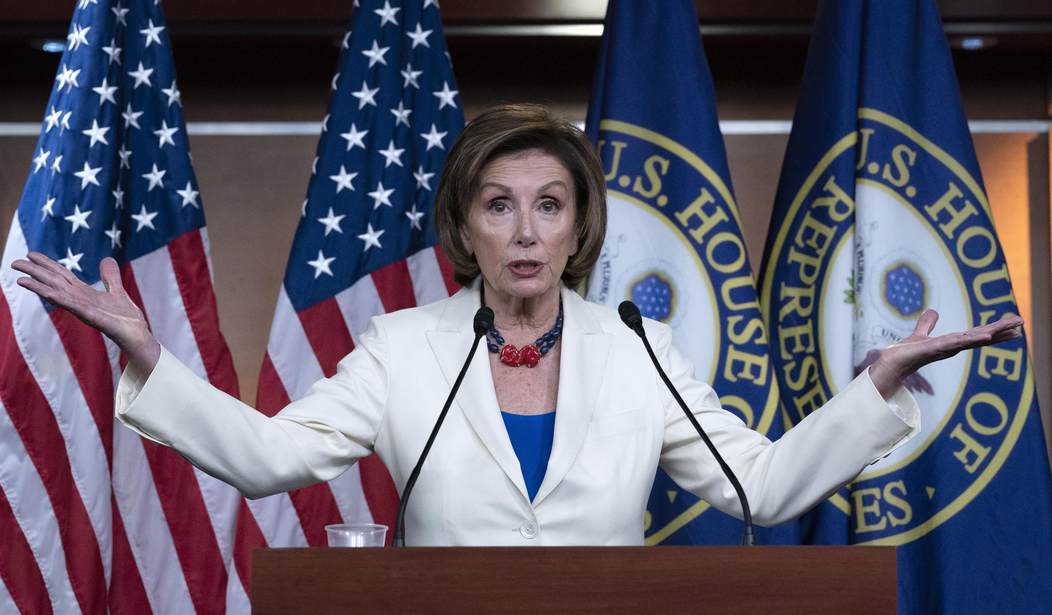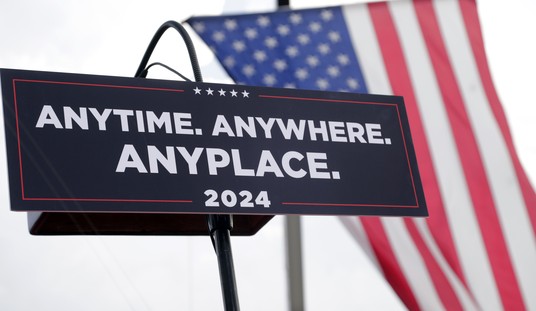Surprising, yet not surprising. The whole country’s starting to sweat over inflation and disruptions to the supply chain. Why wouldn’t swing voters prefer the out-party on economic issues in a situation like that?
Even so, Democrats will shiver while digesting this new data from Morning Consult, especially after Glenn Youngkin’s win in Virginia. Suburban voters were majority-makers for Dems in the Trump era, first handing them a House majority in 2018 and then handing Biden the White House in 2020. The question before Virginia voted was whether the left had “bought” those voters, making them reliable Democrats in post-Trump elections, or merely “rented” them such that the right kind of GOP candidate could win a meaningful number back.
We have our answer. And in case there was lingering doubt, Morning Consult is here to dispense with it:

Democrats lead on our more individual issues there than Republicans do but the GOP will happily cede the advantage on lesser concerns like the environment in exchange for a solid lead on jobs and a big lead on the economy, particularly at a moment when economic problems are foremost in voters’ minds. A 12-point Republican lead on immigration is also ominous for Biden and his party in that it suggests his migrant-friendly border policy is costing him votes with a key bloc.
Given that rural Republican base voters are sure to turn out in force next year, the suburbs are the only thing standing between Democrats and a bloodbath. Looking at the numbers above, which way are they likely to break?
A minor surprise in MC’s numbers is Democrats leading on education, an issue that probably won Youngkin the election in Virginia. I wonder how well the backlash in VA to liberal school policies will translate nationally. For starters, a recent national poll found 71 percent of Americans, including 68 percent of Republicans, thought their local schools had done a very good or somewhat good job of balancing health and safety with other priorities during the pandemic. Among parents, that number rose to 75 percent. In Virginia, Youngkin’s own advisors seem to think kitchen-table issues mattered at least as much to his win as school policy did: “[W]hen we dug deeper, what really worried Virginians was the increasing cost of living — rising fuel prices, skyrocketing housing costs, higher grocery prices. By June 2021, this was the top issue among voters.”
Education policy may matter more in some communities than others depending on how oppressive the local school district’s COVID policies were. In northern Virginia, which was notoriously overcautious in keeping school closed, Youngkin benefited:
“If they opened up the schools in the fall of 2020, Terry McAuliffe wins,” said Rory Cooper, a Republican strategist who lives in Northern Virginia and has been a persistent public voice on these issues.
“Democrats always have underestimated how many Democrats were mad at the school closures. In my very blue neighborhood, there were first-time Republican voters this cycle, which you would normally think is nuts a year out of Trump. But they were voting in their self-interest, which is what voters typically do, and their self-interest includes their kids,” Cooper added…
In my own neighborhood, the rough North Carolina equivalent of Rory Cooper’s in Virginia, this fall I, too, started to feel people at polar ends of the political spectrum inching closer and closer together on specific, schools-centric issues like masks. Their shared thoughts distilled: When can our kids take them off, especially as more and more of them get vaccinated? Because what they’re giving up is not now, and arguably never has been, commensurate with the risk they’re taking on. People who don’t talk politics, or who recently haven’t talked much at all, period, because of political disagreements only exacerbated by the pandemic, are adjusting to the reality of unexpected like-mindedness.
In communities where that sentiment is shared, education is a potent issue. But if it’s true that 75 percent of parents are at least somewhat satisfied with how schools have handled COVID, those communities may be fewer and further between than the GOP expects. In fact, in Morning Consult’s poll, just four percent of Americans say education is their top issue when considering next year’s national elections. By contrast, 39 percent say the economy is.
So the good news for Democrats is that their big washout on schools in VA might not translate across the country. The bad news for them is that it won’t matter since the GOP is eating their lunch, including among suburbanites, on an issue that’s much more potent. So much so that the Republican lead on the economy in the suburbs (51/35) is actually greater than it is nationally (48/38).
Speaking of issues that may have more or less salience than expected, one more number for you. This comes from YouGov. The question: “Do you have a favorable or unfavorable opinion of critical race theory?”

Independents are at 33/62, suburbanites are at 37/57, more bad results for Democrats. However, when people were asked whether they thought CRT was actually being taught by schools in their community, just 21 percent said yes. Among indies and suburbanites, 23 percent said so. That may be another issue that can flip voters in districts where they have special reason to be concerned about it but might not resonate nationally except as a bit of extra turnout motivation for the GOP base. I’ll leave you with this.
We humbly present for your enjoyment: "The Critical Race Can Can" pic.twitter.com/2s0cJANgof
— Tony Kinnett (@TheTonus) November 11, 2021







